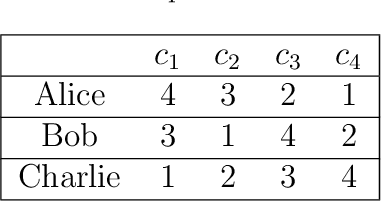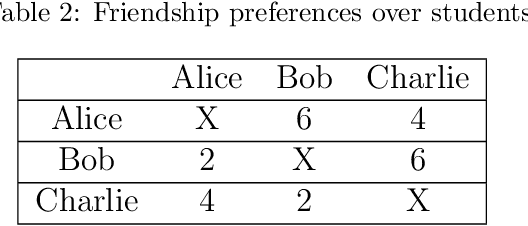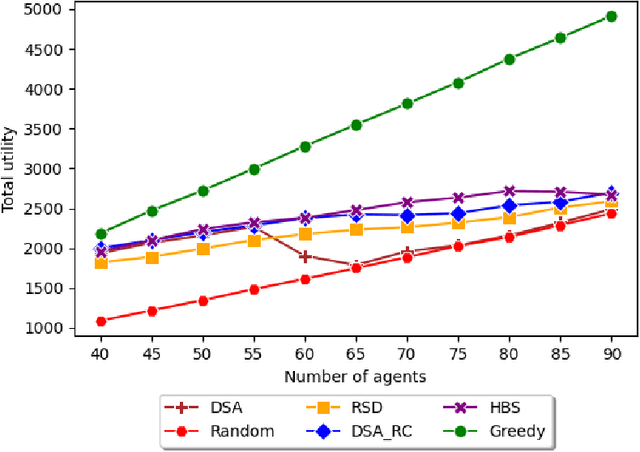Distributed course allocation with asymmetric friendships
Paper and Code
Sep 18, 2023



Students' decisions on whether to take a class are strongly affected by whether their friends plan to take the class with them. A student may prefer to be assigned to a course they likes less, just to be with their friends, rather than taking a more preferred class alone. It has been shown that taking classes with friends positively affects academic performance. Thus, academic institutes should prioritize friendship relations when assigning course seats. The introduction of friendship relations results in several non-trivial changes to current course allocation methods. This paper explores how course allocation mechanisms can account for friendships between students and provide a unique, distributed solution. In particular, we model the problem as an asymmetric distributed constraint optimization problem and develop a new dedicated algorithm. Our extensive evaluation includes both simulated data and data derived from a user study on 177 students' preferences over courses and friends. The results show that our algorithm obtains high utility for the students while keeping the solution fair and observing courses' seat capacity limitations.
 Add to Chrome
Add to Chrome Add to Firefox
Add to Firefox Add to Edge
Add to Edge